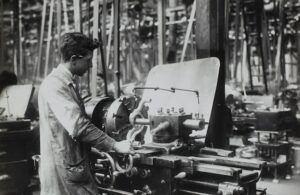Case Study: Automotive OEM Manufacturer
- Project Name: Automotive OEM Shift Change
- Industry: Manufacturing (Automotive)
- Achievement: Identified and eliminated wasteful shift changeovers
The Challenge
A well-known automotive original equipment manufacturers (OEM) was experiencing significant production slowdowns during shift changes. As a manufacturer of key dashboard components for a range of well-known European car marques, there was a steady demand for output paired with a very tight shipping schedule. These parts had to be delivered same day to automobile manufacturing plants across the European Economic Area.
Some of the company’s shift problems were predictable, others less so. For example, the company experienced long periods of slow or even stopped production during a shift changeover. With three 8-hour shifts assigned to each day, and shift changes averaging thirty minutes, this represented 90 minutes of downtime per 24-hour day.
Additionally, each shift sought to complete all work-in-progress (WIP) without leaving any in the queue for the following shift, to meet or exceed its production quota. Although this appears to be an ideal interpretation of efficiency, it actually represented a bottleneck. It had been mandated that each shift allot some of its work time to cleaning and maintenance of the equipment. Instead, shifts competed, seeking to dedicate 100 percent of their time to production, while downloading the maintenance activities to the shift that followed.
The Solution
The company turned to Zerwaste for analysis and a solution. The first challenge we approached was the time-consuming shift changeover process. By tracking work patterns and quantifying the activities involved in a shift change, we identified several processes that represented wasteful or redundant habits that made the shift changeovers time inefficient.
For example, incident report forms were stored on a computer located in a supervisor’s office. Each shift change required that a foreperson walk across the floor to this office to request printouts of the incident report forms. Sometimes the supervisor was not present to make these printouts. Once the documents were printed, they would be filled out using a pen. This bottleneck was cleared by switching over to online fillable forms accessed through mobile tablets which were given to each foreperson. In addition, incidents were to be reported at the time of the incident, not at the end of a shift.
Working with shift teams, we identified and replaced or improved several other time-consuming procedures that had grown organically into the culture. Training and change management courses were delivered to help the team members understand and embrace the new practices.
As a result, the new procedure required all employees to spend the first 10 minutes of each shift cleaning or maintaining the work area and equipment as well as exchanging report information with the colleague they would be replacing.
Results
Shift changeover time was reduced to zero. This added 90 minutes more to the production day resulting in additional revenues of over €900,000 annually. The company is now investigating an expansion of this process to its other plants.



